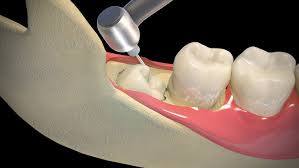All About Dental Bridges in Toronto: Options and Benefits

Understanding Dental Bridges
What Are Dental Bridges?
A dental bridge is a prosthetic device designed to replace one or more missing teeth by bridging the gap between existing teeth. These bridges are custom-made to match your natural teeth, ensuring a comfortable fit and a natural appearance. Dental bridges not only enhance the aesthetic appeal of your smile but also contribute to overall oral health by preventing issues caused by gaps in your teeth.
How Dental Bridges Work
Dental bridges work by filling in spaces with a prosthetic tooth supported by dental implants, your natural teeth, or a combination of both. Often referred to as a ‘fixed partial denture,’ these bridges are securely bonded or cemented to your teeth, eliminating the need for removal during sleep or cleaning. Closing tooth gaps is crucial not only for cosmetic reasons but also for the long-term well-being of your mouth. Missing teeth can impede speech and hinder proper chewing.
Materials Used in Dental Bridges
Dental bridges can be made from a variety of materials, each offering different benefits:
- Porcelain: Offers a natural look and is often used for front teeth.
- Gold: Known for its durability and strength.
- Alloys: Often used in combination with porcelain for added strength.
- Zirconia: Provides a good balance of aesthetics and durability.
Choosing the right material for your dental bridge depends on various factors, including the location of the missing tooth, your budget, and your aesthetic preferences.
Types of Dental Bridges Available in Toronto
When considering dental bridges in Toronto, it’s essential to understand the different types available to make an informed decision. Each type of dental bridge offers unique benefits and is suited for specific dental needs. Below are the primary types of dental bridges you can choose from in Toronto.
Traditional Dental Bridges
Traditional dental bridges are the most common type. They consist of one or more artificial teeth held in place by dental crowns that are cemented onto the abutment teeth. These bridges are typically made from porcelain fused to metal or ceramics, providing a durable and aesthetically pleasing solution.
Cantilever Dental Bridges
Cantilever dental bridges are used when there is only one adjacent tooth next to the missing tooth gap. This type of bridge is less common and is generally recommended for areas of the mouth that experience less stress, such as the front teeth.
Maryland Bonded Bridges
Maryland bonded bridges, also known as resin-bonded bridges, are made of porcelain or metal frameworks with wings on each side. These wings are bonded to the back of the existing teeth. Maryland bridges are a more conservative option as they do not require the adjacent teeth to be filed down.
Choosing the right type of dental bridge depends on various factors, including the location of the missing tooth, the condition of the adjacent teeth, and your overall oral health. Consult with your dentist to determine the best option for you.
Benefits of Choosing Dental Bridges
Improved Aesthetics
Losing teeth can significantly impact your self-confidence and comfort. Dental bridges rejuvenate your smile, restoring both appearance and function. They offer a less invasive option compared to implants, making them suitable for those wary of surgery. Dental bridges can effectively replace 1 to 3 missing teeth in a single appointment.
Enhanced Functionality
A dental bridge enhances both the aesthetic appeal and overall oral health by filling in spaces with a prosthetic tooth supported by dental implants, your natural teeth, or a combination of both. This not only improves your ability to chew and speak but also ensures long-term health benefits for your adjacent teeth and the overall bone structure of your mouth.
Prevention of Teeth Shifting
One of the long-term advantages of dental bridges is the prevention of teeth shifting. When a tooth or multiple teeth are missing, the remaining teeth can shift out of place, leading to bite issues and further oral health complications. A dental bridge helps maintain the proper alignment of your teeth, ensuring the long-term well-being of your mouth.
Dental bridges offer a practical and effective solution for those looking to restore their smile and improve their oral health without undergoing invasive procedures.
The Procedure for Getting a Dental Bridge in Toronto
Initial Consultation
The first step in getting a dental bridge in Toronto is the initial consultation. During this visit, your dentist will evaluate your oral health, discuss your options, and determine if a dental bridge is the right solution for you. This is a crucial step to ensure that the dental bridge will be effective and long-lasting.
Preparation and Impression
Once you decide to proceed, the next step involves preparing the abutment teeth. This may include reshaping these teeth to ensure they can support the bridge. After preparation, your dentist will take an impression of your teeth, which will be used to create a custom-fit bridge.
Fitting and Aftercare
When your dental bridge is ready, you will return to the dentist for fitting. The bridge will be adjusted to ensure a perfect fit and then permanently bonded in place. Aftercare is essential to maintain the longevity of your dental bridge. Your dentist will provide specific instructions on how to care for your new dental bridge.
Proper aftercare and regular dental check-ups are vital to ensure the longevity and functionality of your dental bridge.
Cost of Dental Bridges in Toronto
Factors Influencing Cost
The cost of a dental bridge can vary widely from patient to patient. Several factors influence the final price, including the type of bridge, materials used, and the complexity of the procedure. Geographic location and the expertise of the dentist also play significant roles.
Insurance Coverage
With a typical insurance plan, a dental bridge averages out to about $800 to $1200+. However, without insurance, you might expect to pay between $2000 to $3000 and above. It’s essential to check with your insurance provider to understand what portion of the cost will be covered.
Financing Options
For those without insurance or with limited coverage, many dental clinics offer financing options. These can include payment plans, credit arrangements, or third-party financing services. It’s advisable to discuss these options with your dental clinic to find a plan that suits your budget.
Understanding the cost structure and available financial aids can make dental bridges more accessible to everyone.
Choosing the Right Dental Clinic in Toronto
What to Look for in a Dental Clinic
Selecting the right dental clinic in Toronto is crucial for ensuring quality dental care. Look for clinics that offer a wide range of services, from general dentistry to emergency care. Ensure the clinic has modern equipment and a clean, welcoming environment.
Questions to Ask Your Dentist
When choosing a dental clinic, it’s important to ask the right questions:
- What are your qualifications and experience?
- Do you offer emergency dentist services in Toronto?
- What are the costs and payment options?
- Can you provide patient testimonials?
Patient Reviews and Testimonials
Reading patient reviews and testimonials can provide valuable insights into the quality of care at a dental clinic. Look for consistent positive feedback regarding the professionalism of the staff, the cleanliness of the facility, and the effectiveness of treatments.
Choosing the right dental clinic can make a significant difference in your overall dental health and satisfaction with the services received.
Maintaining Your Dental Bridge
Daily Oral Hygiene
One of the best things about getting a dental bridge is how strong and useful it is. With proper maintenance, they can last fifteen years or longer. Maintaining a strict oral hygiene regimen is the best way to make the most of your dental bridge. This exercise should consist of:
- Brushing and flossing often.
- Utilize a specific flosser that your dentist can supply to clean in between your teeth and the bridge.
- Eating a diet low in sugary and acidic foods that is balanced and nutritious.
Regular Dental Check-ups
Your dentist will schedule periodic examinations to monitor the bridge’s condition and ensure optimal oral health. Regular dental check-ups are essential to catch any potential issues early and to maintain the longevity of your dental bridge.
Handling Issues and Repairs
If you experience any discomfort or issues with your dental bridge, it is crucial to contact your dentist immediately. They can provide guidance on handling minor issues and schedule repairs if necessary. Additionally, using a dentist night guard can help protect your bridge from damage caused by teeth grinding at night.
Patients’ oral hygiene is a significantly important factor when it comes to the lifespan of a bridge. Regular dental check-ups and proper maintenance are key to impeccable dental health.
Conclusion
In conclusion, dental bridges offer a reliable and effective solution for replacing missing teeth, ensuring both aesthetic appeal and functional improvement. Whether you opt for traditional, cantilever, or implant-supported bridges, each type comes with its unique benefits tailored to meet individual needs. The process is relatively quick and minimally invasive, making it an attractive option for many. By choosing dental bridges, you can restore your smile, improve your oral health, and boost your confidence. If you’re considering this dental procedure, consult with a professional in Toronto to explore the best options available for your specific situation.



